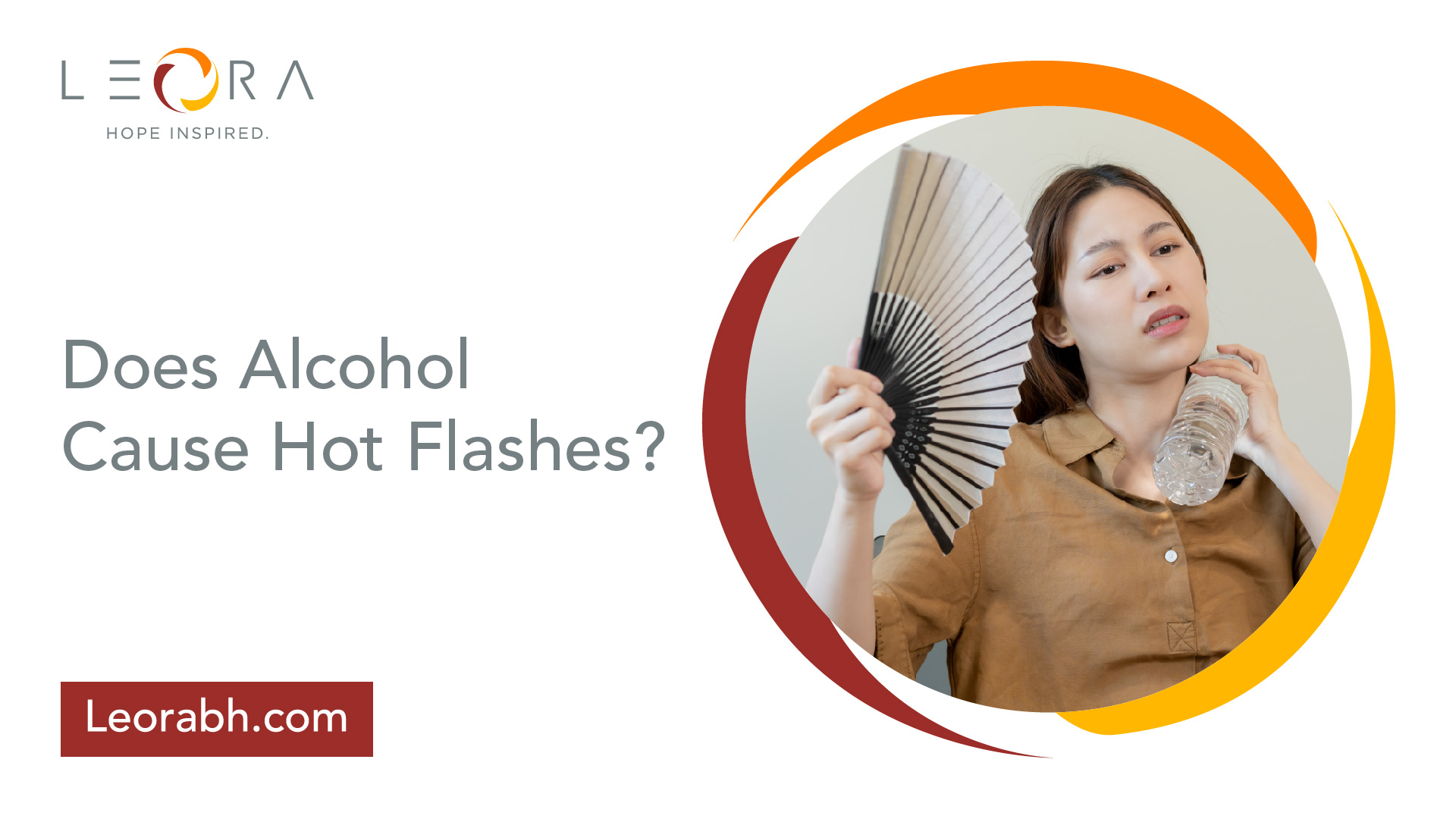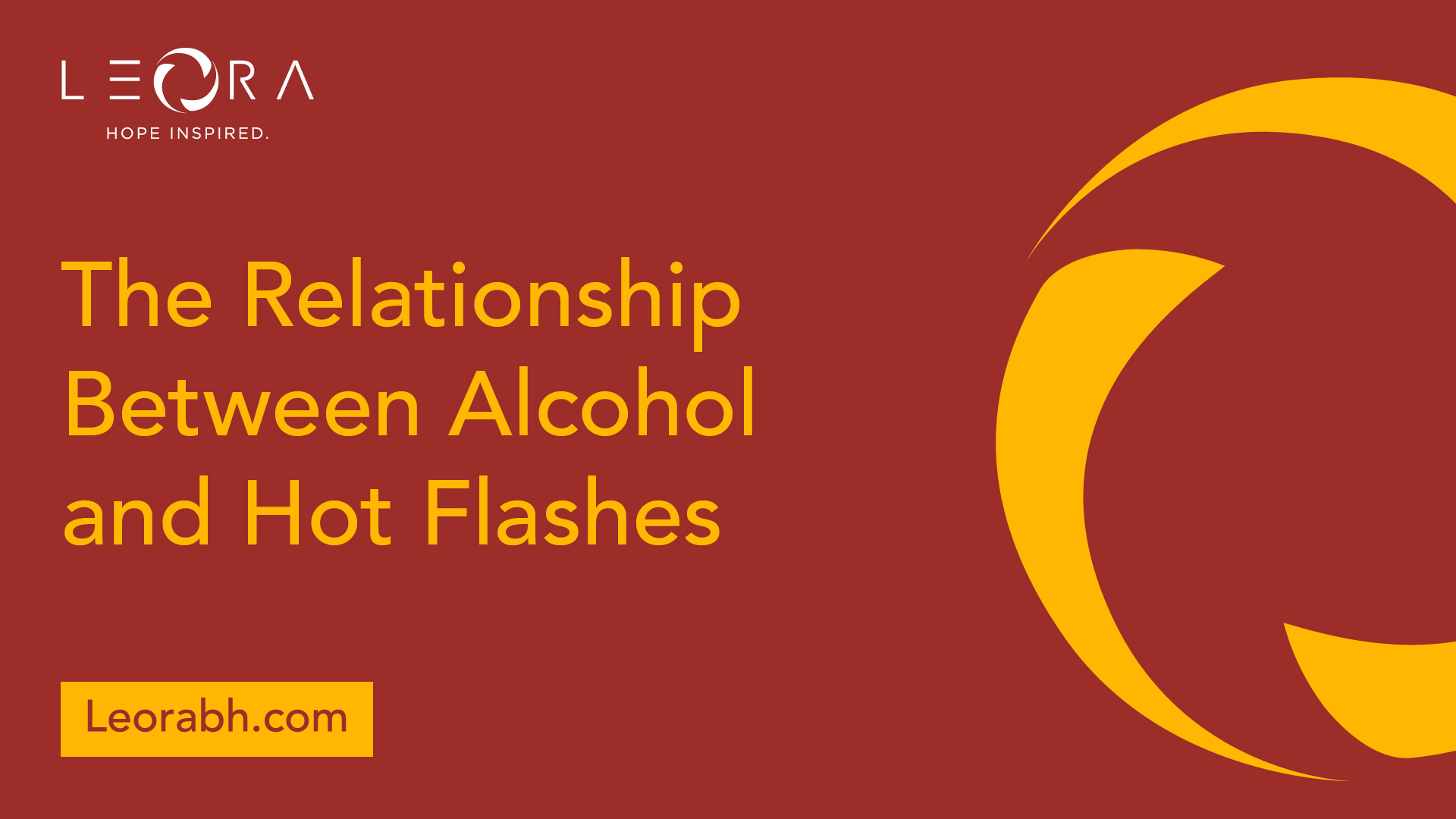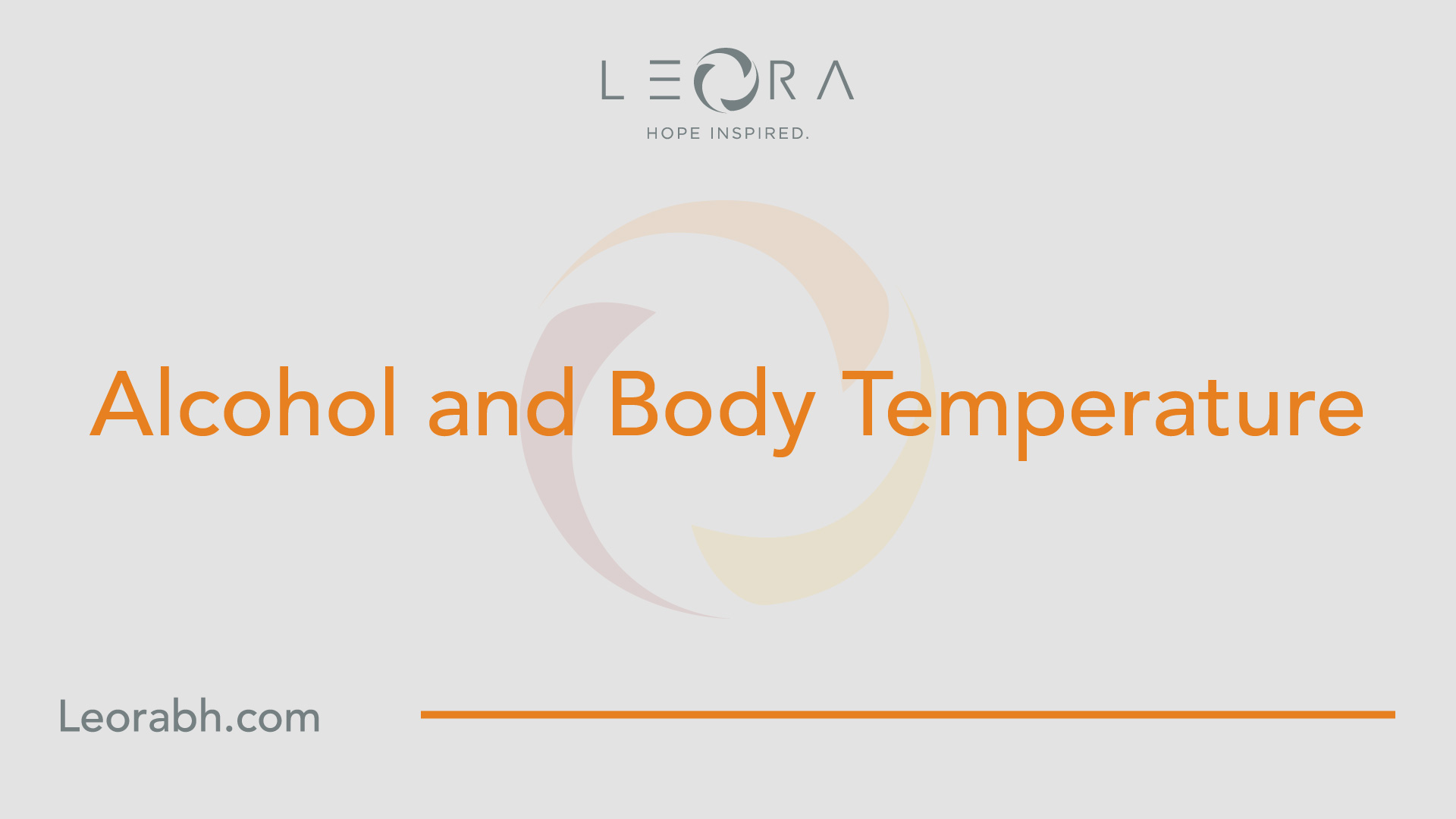Does Alcohol Cause Hot Flashes?
Unveiling the surprising relationship between alcohol and hot flashes. Discover the truth about alcohol-induced heat waves.
Understanding Hot Flashes
Hot flashes are a common phenomenon experienced by many individuals, particularly women, during various stages of life. These sudden feelings of intense heat, often accompanied by sweating and flushing of the face, can be both uncomfortable and disruptive. To better understand hot flashes and their potential triggers, let's explore what they are and what commonly triggers them.

What are Hot Flashes?
Hot flashes, also known as hot flushes, are characterized by a sudden and intense heat sensation that spreads throughout the body, typically starting from the chest and moving towards the face and neck. This sensation is often accompanied by sweating, rapid heartbeat, and a reddening of the skin. The duration and frequency of hot flashes can vary from person to person, with some experiencing them multiple times a day, while others may have them less frequently.
Hot flashes are most commonly associated with menopause, a natural biological process that marks the end of a woman's reproductive years. However, hot flashes can also occur in men, particularly those undergoing certain medical treatments or experiencing hormonal imbalances.
Common Triggers for Hot Flashes
While the exact cause of hot flashes is not fully understood, there are several triggers that are known to contribute to their occurrence. These triggers can vary from person to person, but some common factors include:
- Hormonal Changes: Fluctuations in hormone levels, particularly a decrease in estrogen, are closely linked to the onset of hot flashes. During menopause, the body undergoes significant hormonal changes, which can trigger hot flashes.
- Stress and Anxiety: Emotional stress and anxiety can exacerbate hot flashes or act as a trigger. It is believed that stress can affect the body's temperature regulation and contribute to the occurrence of hot flashes.
- Spicy Foods and Caffeine: Certain foods and beverages, such as spicy foods and those containing caffeine, have been known to trigger hot flashes in some individuals. It is advisable to monitor your intake and identify any possible associations between these triggers and your hot flashes.
- Alcohol Consumption: Alcohol consumption is another potential trigger for hot flashes. While the exact mechanisms behind this relationship are not fully understood, studies have suggested a link between alcohol consumption and an increased likelihood of experiencing hot flashes.
Understanding the triggers for hot flashes can be helpful in managing and minimizing their occurrence. By identifying and avoiding potential triggers, individuals experiencing hot flashes can improve their overall comfort and quality of life. It is important to note that everyone's experience with hot flashes can vary, and what triggers hot flashes for one person may not necessarily affect another individual in the same way.

The Relationship Between Alcohol and Hot Flashes
When it comes to hot flashes, many individuals wonder if alcohol consumption can trigger or worsen these sudden waves of intense heat and sweating. In this section, we will explore the relationship between alcohol and hot flashes, including whether alcohol causes hot flashes and the factors that influence this link.
Does Alcohol Cause Hot Flashes?
The relationship between alcohol and hot flashes is complex and can vary from person to person. While alcohol itself may not directly cause hot flashes, it can act as a trigger or exacerbate existing hot flashes in certain individuals. Alcohol consumption can lead to an increase in body temperature, which may contribute to the onset of hot flashes. Additionally, alcohol can affect hormone levels, which play a role in the occurrence of hot flashes. However, more research is needed to fully understand the direct causal relationship between alcohol and hot flashes.
Factors That Influence the Link
Several factors can influence the relationship between alcohol and hot flashes. These factors can include:
- Individual Sensitivity: Some individuals may be more sensitive to the effects of alcohol, including its impact on body temperature and hormone levels. This sensitivity can vary from person to person, and some individuals may experience hot flashes after drinking alcohol, while others may not.
- Alcohol Type and Quantity: The type and amount of alcohol consumed can also influence the likelihood of experiencing hot flashes. Certain types of alcohol, such as red wine, contain compounds that may trigger hot flashes in some individuals. Additionally, consuming larger quantities of alcohol can increase the risk of hot flashes.
- Hormonal Changes: Hormonal fluctuations, such as those experienced during menopause, can make individuals more susceptible to hot flashes. Alcohol can further disrupt hormonal balance, potentially increasing the likelihood of hot flashes.
- Overall Health and Lifestyle: Individual health and lifestyle factors, such as overall health status, stress levels, and other habits, can influence the occurrence and severity of hot flashes. Alcohol consumption may interact with these factors and contribute to the occurrence of hot flashes.
Understanding the relationship between alcohol and hot flashes can help individuals make informed choices about their alcohol consumption, especially if they are experiencing hot flashes or are at a higher risk of developing them. It's important to note that if you experience frequent or severe hot flashes, it is advisable to consult with a healthcare professional for a comprehensive evaluation and personalized guidance.

Alcohol and Hormones
When examining the relationship between alcohol and hot flashes, it's important to understand the impact of alcohol on hormones and how hormonal changes can trigger hot flashes.
Impact of Alcohol on Hormones
Alcohol consumption can disrupt the delicate balance of hormones in the body. Research suggests that alcohol can interfere with the production, regulation, and metabolism of various hormones, including estrogen and progesterone. These hormonal imbalances can contribute to the occurrence of hot flashes.
Estrogen is a hormone that plays a crucial role in regulating body temperature. Fluctuations in estrogen levels, such as those experienced during perimenopause or menopause, can lead to a greater susceptibility to hot flashes. Alcohol consumption has been associated with alterations in estrogen levels, potentially exacerbating the frequency and intensity of hot flashes.
Additionally, alcohol can affect other hormones involved in the body's temperature regulation process, such as luteinizing hormone and follicle-stimulating hormone. These hormonal disruptions can further contribute to the occurrence of hot flashes after drinking alcohol.
How Hormonal Changes Can Trigger Hot Flashes
Hot flashes are often triggered by hormonal changes, particularly during menopause. As estrogen levels decline, the hypothalamus, which is responsible for regulating body temperature, can become more sensitive to even slight fluctuations. This increased sensitivity can lead to the hypothalamus mistakenly perceiving a rise in body temperature when there isn't one, resulting in the body's attempts to cool down through the release of sweat and dilation of blood vessels.
Alcohol consumption can exacerbate the hormonal changes that trigger hot flashes. The effects of alcohol on estrogen levels, as mentioned earlier, can disrupt the delicate balance necessary for temperature regulation. Moreover, alcohol-induced vasodilation, the widening of blood vessels, can further contribute to the sensation of heat and the onset of hot flashes.
Understanding the impact of alcohol on hormones and the potential for hormonal changes to trigger hot flashes is essential in comprehending the connection between alcohol consumption and hot flashes. It's important to note that individual experiences may vary, as factors such as genetics, overall health, and alcohol consumption patterns can influence the relationship.
Alcohol and Body Temperature
Understanding the relationship between alcohol consumption and hot flashes involves examining the effects of alcohol on body temperature. Alcohol can have a significant impact on the body's thermoregulation processes, potentially leading to hot flashes in some individuals.
Alcohol's Effect on Body Temperature
Alcohol is a vasodilator, meaning it causes the blood vessels to widen and increase blood flow to the skin's surface. This can create a sensation of warmth and flushing, especially in the face and neck. While this may initially feel pleasant, it can also disrupt the body's ability to regulate temperature effectively.
When alcohol is consumed, it initially causes a brief increase in body temperature. However, as the body metabolizes the alcohol, it can lead to a subsequent drop in core body temperature. This drop in temperature can trigger a compensatory response in the body to restore balance, potentially resulting in hot flashes or night sweats.
Alcohol-induced Vasodilation and Hot Flashes
The vasodilating effects of alcohol can exacerbate hot flashes in individuals who are already prone to experiencing them. Hot flashes are commonly associated with hormonal changes, such as those that occur during menopause. Alcohol can further disrupt hormonal balance and potentially intensify the frequency and severity of hot flashes.
Additionally, alcohol consumption has been found to impact estrogen levels in the body. Estrogen plays a crucial role in regulating body temperature, and fluctuations in estrogen levels can contribute to hot flashes. Alcohol's effect on estrogen levels can potentially contribute to the occurrence of alcohol-induced hot flashes.
It's important to note that not everyone who consumes alcohol will experience hot flashes. The relationship between alcohol and hot flashes can vary depending on individual factors such as overall health, hormonal balance, and alcohol consumption patterns. If you are experiencing bothersome hot flashes after drinking alcohol, it may be helpful to moderate your alcohol intake and monitor how it affects your symptoms.
Understanding the connection between alcohol and hot flashes can empower individuals to make informed decisions about their alcohol consumption and manage their symptoms effectively. It's always a good idea to consult with a healthcare professional to discuss any concerns or questions you may have regarding alcohol and hot flashes.
Managing Hot Flashes and Alcohol Consumption
If you experience hot flashes and are concerned about the impact of alcohol, there are several strategies you can employ to manage your symptoms effectively. Moderation and awareness play a key role in minimizing the potential triggers associated with hot flashes. Additionally, there are other tips that can help alleviate the frequency and intensity of hot flashes.
Moderation and Awareness
Moderation is essential when it comes to alcohol consumption and managing hot flashes. While there isn't a definitive guideline on the quantity of alcohol that triggers hot flashes, it is generally advisable to limit your intake. Pay attention to your body's response and identify any patterns between alcohol consumption and hot flashes.
It can be helpful to keep a journal to track your alcohol consumption and any subsequent hot flashes. This will allow you to identify potential triggers and make informed decisions about when and how much alcohol to consume. Being aware of your limits and making conscious choices can assist in reducing the likelihood and severity of hot flashes.
Other Tips for Minimizing Hot Flashes
In addition to moderating your alcohol consumption, there are other measures you can take to minimize hot flashes:
- Stay Cool: Dress in lightweight, breathable clothing and keep your environment cool. Use fans or air conditioning to maintain a comfortable temperature.
- Manage Stress: Stress can exacerbate hot flashes. Engage in relaxation techniques such as deep breathing exercises, meditation, or yoga to help reduce stress levels.
- Avoid Triggers: Identify and avoid triggers that can contribute to hot flashes. Common triggers include spicy foods, caffeine, and hot beverages.
- Stay Hydrated: Drink plenty of water throughout the day to stay hydrated. This can help regulate body temperature and potentially alleviate hot flashes.
- Maintain a Healthy Lifestyle: Regular exercise, a balanced diet, and adequate sleep can contribute to overall well-being and potentially reduce the frequency and intensity of hot flashes.
Remember, it's important to consult with a healthcare professional if you have concerns about hot flashes or any other menopausal symptoms. They can provide personalized advice and guidance based on your specific situation.
By practicing moderation, being aware of your body's response, and implementing additional strategies, you can effectively manage hot flashes while still enjoying a social drink.
Sources
Hot flashes - Diagnosis & treatment
Find Your Inner Light
Related Articles
Contact Us
Leora Behavioral Health offers a comprehensive addiction treatment programs to help you get your life back on track.
Our trained professionals will work with you to develop a personalized treatment plan that meets your unique needs. If you or someone you know is struggling with addiction, reach out to Leora Behavioral Health today.


.svg)





.svg)
.svg)
.svg)
.svg)